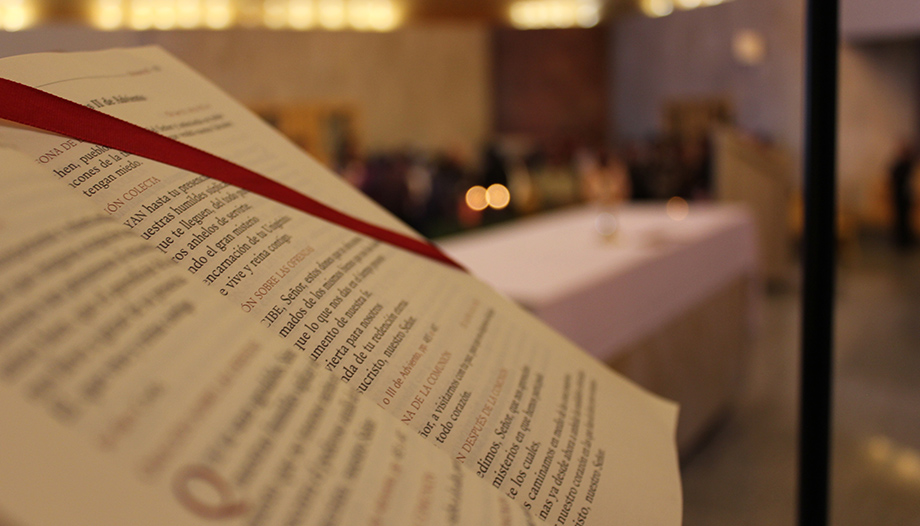Melchizedek is a very mysterious figure who appears in the book of Genesis. We are told that he is a priest who blessed Abraham, but to whom the patriarch later gave a tithe, a tenth of all he had, a clear sign of Melchizedek's superiority. He then disappears from the Bible only to reappear cryptically in a line of Psalm 110, always seen as a psalm about the Messiah: "The Lord has sworn it and does not repent: 'You are an eternal priest, according to the rite of Melchizedek.'" And then, in the New Testament, the author of the letter to the Hebrews has no doubt that all this ultimately referred to Christ (see Hebrews 7).
The name Melchizedek, meaning "King of Righteousness," and the fact that he was King of "Salem," meaning "peace," point to Jesus, who is the true king of righteousness and peace. And the fact that he simply appears, without reference to his ancestry, and then disappears, without reference to his future, gives him a sense of eternity, which again is fulfilled in Jesus: "Without father, without mother, without genealogy; neither the beginning of his days nor the end of his life is mentioned. By virtue of this likeness to the Son of God, he is a priest perpetually." (Heb 7:3).
On the feast of Corpus Christi today, the Church offers us this episode about Melchizedek and the psalm in which he is mentioned. Melchizedek is shown offering a gift of bread and wine to Abraham with which he blesses him. But Jesus goes much further. Not only is he able to multiply the bread, as we see in today's Gospel (a sign of his power over creation), but he can also give the bread and wine a whole new meaning and even a whole new reality. This is the gift of the Eucharist, which St. Paul describes in the second reading. Jesus far surpasses the blessing that Melchizedek bestowed on Abraham. Through this new gift of bread and wine, Jesus now gives us his own divine life, the body and blood, the humanity and divinity of God made man.
With that ancient gift of bread and wine, Melchizedek blessed Abraham's mission, his journey in obedience to God's command, and celebrated his conquest over his enemies. The Eucharist is now the food for our life's journey to God and eternity-to share with the High and Eternal Priest Jesus-and it helps us to fight and win all the battles we have to fight in the service of God. The Jesus who multiplies the bread can also "multiply", transform completely, his reality, making of himself for our salvation, the bread of eternal life (cf. Jn 6:64).








